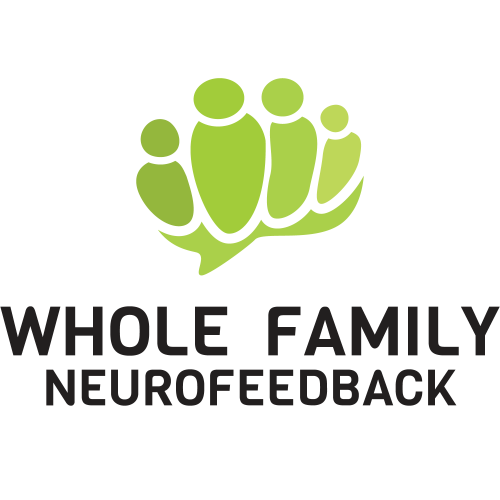Neurofeedback And Recovery: Tapping Into Your Brain’s Ability To Self- Regulate
Winter can be challenging if you’re in recovery from alcohol, drugs, food, cigarettes, or anything else that you’ve used to help cope with feelings of overwhelm and stress.
Winter can be isolating and bring up old triggers.
It can bring up feelings of hopelessness and helplessness.
This happened to a dear friend of mine who often felt that no matter what she did, life wasn’t going to get better. To cope with this overwhelming feeling, she drank.
I’ve worked as a therapist for over 25 years and I’ve noticed that people turn to mind-altering substances when they feel they don’t have control over their lives. Then life’s challenges get harder and harder, and so does the feeling of helplessness and the need for drugs, alcohol, and food. A cycle that often continues.
But I’ve also noticed that my clients who use NeurOptimal® start seeing their lives differently.
They start seeing life’s challenges differently and most importantly – they start to see how they can work to solve life’s challenges and become more empowered.
There are many resources for people in recovery. Today, we’re going to discuss how neurofeedback can be a helpful tool to utilize on your recovery journey.
What Is Neurofeedback?
If you’re unfamiliar with neurofeedback, it’s a brain training system that detects changes in your brain’s electrical patterns. A neurofeedback machine can detect when your brain starts to feel discomfort or distress. Your brain then receives a signal this is happening. This allows your brain to shift in a way that feels better.
Neurofeedback is like physical fitness for your brain. You’re constantly reminded to keep the rest of your body healthy, so why not train your brain too?
You can use neurofeedback for just about anything interfering with your life.
Let’s talk a little more about neurofeedback and recovery. Neurofeedback can be another tool to use on your journey of recovery.
How Does Neurofeedback Help?
I love NeurOptimal® as a neurofeedback option because there is no diagnosis needed to use it. It’s not a treatment for any illness or condition. NeurOptimal® taps into your brain’s natural ability to optimize its own functioning.
With most things in life, there are no quick fixes. When you’re in recovery and moving towards empowerment and freedom, there is an emotional process that you and your family go through. Going through this process will look different for everyone. Only you will know what supports and services you need. NeurOptimal® can be a nice addition to the supports you’re already using.
Neurofeedback helps with the challenges you face while in recovery. You may need help with:
- Healthier sleep habits
- Improved self-care
- Managing stress
- Focus
- Changing the perception of what you’re dealing with
- Mental and emotional resilience
Remember the friend I mentioned earlier? She noticed a difference after her first session because, for the first time in a long time, she slept a solid 8 hours.
Let’s get into how NeurOptimal® works to help you with these challenges.
How Does NeurOptimal® Work?
Neurofeedback encourages the brain to develop healthier patterns and train your brain for better functioning.
First, it monitors the electrical activity of the brain via sensors on the scalp and ears. It does this while you’re listening to music or watching a movie. Once the unit detects turbulence – or unpleasant patterns – it gives the brain a signal.
This signal is simply a brief interruption in what you’re listening to. The signal helps you self-regulate or tap into your brain’s ability to find optimal functioning.
In traditional neurofeedback, you need to work with a practitioner who uses protocols to help your brain shift into certain patterns or brain waves. NeurOptimal® doesn’t do this at all. By giving you the signal, your brain finds more efficient pathways and corrects on its own.
Using neurofeedback is like holding a mirror up to your brain. The brain gets information about itself and uses it to bring you back to the present moment. This encourages the brain to shift in more efficient ways (which is more pleasant for you).
The best thing about NeurOptimal® is that the sessions are unique to you. Everyone’s experience with turbulence is different and therefore, each neurofeedback session is tailored to what you need.
Benefits of At-Home Neurofeedback
One of the best benefits of NeurOptimal® is that it can be done at home and the sessions are 33.5 minutes long so it’s easy to fit into your routine.
Many people find neurofeedback helps:
- Promote healthy sleep habits
- Improve mental acuity and focus
- Help you become more flexible and resilient
- Help manage stress
- Help you feel calmer and more confident
This type of neurofeedback works best when the whole family is involved. This is especially important for recovery. Using neurofeedback can help everyone and also be a sign of support to the person in recovery.
Neurofeedback For the Whole Family
Neurofeedback is great for any family member supporting a loved one in recovery. NeurOptimal® works best when everyone in the family is involved because
It can help you:
- Become less “addicted” to the focus on struggling members of the family
- Help empower your loved one in recovery: when the family’s anxiety is less focused on one person, that person has a better chance of finding a sense of empowerment and freedom.
- Improves family functioning: when one family member improves in functioning and can maintain it, the whole family improves
- Promotes calmness within the family: when family members are calm the reactive cycles that lead to chaos go away and new options are available.
- Tap into new resources: When your family is calm you can focus more on creative problem-solving, humor, compassion, and leadership.
Everyone’s journey is different.
If you’re interested in learning more about neurofeedback and recovery, fill out our contact form here.
We’re happy to answer any questions you have!
Resources

